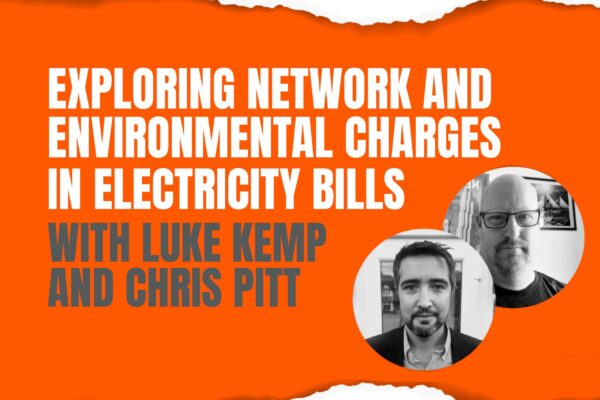July saw the Met Office’s first ever Red weather warning and temperatures in the UK rise above 40°C for the first time, with scientists “absolutely clear” climate change was the driver1. On the back of such a warning so close to home of the need to tackle climate change, August’s Bryt Insight looks at how proposed reforms to the UK’s energy market and wider system could help us reach net zero by 2050, to prevent global temperatures rising further.
Electricity market reforms
Attitudes towards energy and renewables
Good news for renewables
Net zero and sustainability
News in Brief
Electricity market reforms
The UK government has launched a consultation on plans for what it called the “biggest electricity market reform in a generation”. The Department for Business, Energy and Industrial Strategy (BEIS) is looking for energy industry views on changes to the wholesale electricity market, which are designed to address volatile gas prices.
The transformational Review of Electricity Market Arrangements (REMA) covers a wide range of options to address the combined challenges of responding to higher global energy costs, the need to further boost energy security and the UK’s transition to a net zero energy system. With electricity demand set to double over the next 13 years, its aim is to identify and implement UK electricity market reforms that work for businesses, industry and households.
Some of the proposed changes being consulted on include:
- Introducing incentives for consumers to draw energy from the grid at cheaper rates
- Reforming the capacity market to increase participation of on-site flexibility technologies
- Decoupling costly global fossil fuel prices from electricity produced by cheaper renewables
The consultation lasts until October this year, so if you’d like to get involved and have your say, click here.
Meanwhile, in its discussion paper Net Zero Britain, Ofgem has put forward a range of potential reforms to reduce Britain’s reliance on expensive fossil fuels, and transition to a home-grown energy future. Last October, the Government pledged to decarbonise all of the UK’s electricity generation by 2035 – a key milestone on the path to hit net zero emissions by 2050. Ofgem’s discussion paper responds to this and identifies two key areas of reform, which would help deliver the energy system needed to put the UK on the path to achieving net zero by 2050:
- To introduce an independent Future System Operator to lead strategic planning of the energy system at not just national level – as previously proposed – but also to oversee the net zero energy transition at a local level.
- To reform the electricity wholesale market, including limiting the price setting potential of natural gas and using pricing signals to run the system more efficiently.
To find out more, click here.
Attitudes towards energy and renewables
Unsurprisingly, the cost of electricity is worrying British consumers, according to new research into attitudes and concerns around energy conducted on behalf of our parent company, Statkraft3.
The survey captured opinions from more than 2,000 members of the public and found:
- 76% were worried about rising electricity prices
- 59% were concerned their savings won’t cover their bills this winter
- 83% believed the UK should be energy independent
Respondents also had their say on renewables:
- 55% are concerned climate change targets will be forgotten due to the current energy crisis
- 88% were unable to name any specific activities the UK has in place to achieve net zero goals
- 75% said the UK should have started investing in renewable and “green” energy a long time ago
The survey results come after BEIS found more than 80% of Brits would be happy to have ground-mount solar panels in their local area4.
And another survey of 300 hospitality and leisure business owners5 found most were exploring enhanced energy efficiency measures and 50% were considering installing on-site solar panels to help slash their electricity bills.
Despite the immediate focus on rising electricity prices and energy security, it’s encouraging to see the results of these three separate surveys show that businesses and the general public still support and prioritise renewables and on-site technologies.
You can read more about the Statkraft survey by clicking here.
Good news for renewables
In a major boost for UK renewables, the country added one-fifth of global offshore wind capacity in 2021, according to the latest Crown Estate Offshore Wind Report6. The analysis found global offshore wind capacity reached more than 48.2GW, of which more than 20% came from the UK. In Britain, enough offshore wind was generated to power one-third of UK homes, up from 4% 10 years ago.
This figure looks set to continue to grow after the Government has revealed the results of the fourth and “most successful ever” Contracts for Difference (CfD) auction round, securing contracts for a total of 93 renewable electricity projects totalling 11GW in capacity. Once all the projects are operational, this will increase the UK’s overall offshore wind capacity by a third, boosting the Government’s aim of installing 50GW by 2030. The BEIS report also noted that prices for contracts of offshore wind are 70% lower than those secured in the first CfD allocation back in 2015.
This is potentially good news for businesses looking at their long-term energy costs, with analysis from the Energy and Climate Intelligence Unit (ECIU) showing the projects could save about £7 billion on electricity costs under current wholesale prices7.
It’s more good news on the sustainability front, after Europe’s most powerful electric vehicle (EV) charging hub opened in Oxford8. The station, part of the Energy Superhub Oxford project, provides 42 fast and ultra-rapid chargers, capable of charging 400 vehicles. Encouragingly, this technology is being powered entirely by renewable electricity, with 10 MW of installed capacity on-site.
Net zero and sustainability
The High Court has ruled the Government’s net zero strategy as unlawful9, following a successful legal challenge brought by the Good Law Project, Client Earth, Friends of the Earth and others. The strategy was first published last October – but the High Court ruled plans were “too vague”, meaning there were no detailed measures that assured targets to decarbonise the UK economy by 2050 could be met.
Businesses and others had hoped the original strategy would contain time-bound, sector-specific reductions goals. The Government now has eight months to flesh out and amend the net zero strategy. This means we can expect a more detailed plan to be produced, which should include specific industry emissions reductions targets that could be relevant to your sector and business.
Bryt Energy’s Sustainability Manager, Jos Mister, added: “At Bryt Energy, we aim to support businesses throughout their decarbonisation journeys. Key to those journeys is planning and, in this High Court ruling, there are key learnings we can take at a microlevel. If your business is setting its own carbon reduction goals, you should aim to set time-bound targets, as well as being prepared to share details of how targets will be met, to back up your plan.”
Meanwhile, a major new report on The emerging sustainability information ecosystem, from professional services giant EY, has put forward a number of recommendations for businesses reporting Environmental, Social and Governance (ESG) targets and data10. EY found that many businesses are using different definitions of ESG and different methodologies to measure performance. As a result, the report calls for ESG data and ratings agencies to be more transparent about how they source their data and calculate their scores. It says that more standardisation and regulation in ESG-related disclosures is necessary to help stamp out greenwashing.
News in Brief
- The UK’s first Electricity Networks Commissioner has been appointed11 as part of the country’s Energy Security Strategy – Nick Winser CBE. His role will be to reduce timelines for delivering onshore transmission infrastructure and making sure the right infrastructure to boost electricity flow is in place. It should ensure businesses will be able to benefit from a more affordable, renewable supply of electricity sooner than previously planned.
- As the race to be the UK’s next Prime Minister continues, both remaining candidates, Rishi Sunak and Liz Truss, have pledged to maintain the Government’s goal of reaching net zero carbon emissions by 205012.
TALK TO OUR TEAM
If you have any questions on how any of the updates might affect your business, our team of experts is on hand to answer them. You can get in touch with us on 0330 053 8620 or at heretohelp@brytenergy.co.uk.
Sources
- https://news.sky.com/story/uk-weather-its-no-longer-denial-its-here-why-climate-change-will-make-this-weeks-uk-heatwave-more-dangerous-12653155
- https://www.ofgem.gov.uk/publications/ofgem-proposes-reforms-power-uk-forward-net-zero-home-grown-energy-system
- https://www.statkraft.co.uk/newsroom/news-and-stories/archive/2022/majority-british-consumers-call-for-energy-independence/
- https://www.solarpowerportal.co.uk/news/over-80-of-public-happy-with-solar-in-their-local-areas-in-ringing-endorsem
- https://www.edie.net/uk-hospitality-and-leisure-firms-eyeing-on-site-solar-and-energy-efficiency-amid-price-crisis-survey-finds/
- https://www.thecrownestate.co.uk/media/4095/2021-offshore-wind-report.pdf
- https://www.current-news.co.uk/news/cfd-projects-to-save-britain-7bn-under-current-prices
- https://energysuperhuboxford.org/europes-most-powerful-ev-charging-hub-energy-superhub-oxford/
- https://friendsoftheearth.uk/climate/govts-climate-strategy-deemed-unlawful-historic-ruling
- https://www.ey.com/en_vn/public-policy/five-priorities-to-build-trust-in-esg
- https://www.gov.uk/government/news/new-electricity-networks-commissioner-appointed-to-help-ensure-home-grown-energy-for-britain
- https://www.gov.uk/government/news/uk-strengthens-protections-for-taxpayers-in-energy-treaty-negotiations
- https://www.channel4.com/news/tory-leadership-race-will-new-leader-pledge-to-2050-net-zero-goal


